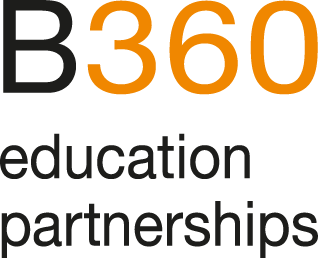Interview with Dr Tjama Tjivikua
Vice Chancellor at Namibia University of Sciene and Technology NUST
On the occasion of the B360 Rietberg Event of June 27, 2018
Nur in Englisch verfügbar.
The partnership between NUST (formerly Polytechnic of Namibia) and B360 started exactly nine years ago. How would you summarize the „pioneer years“ of our relationship?
First of all, let me thank you very much for the invitation to the annual Rietberg event. I attended it before, and every time I walked away with a very good feeling about our partnership.
The pioneering years have been very exciting, they have been very engaging, they have been filled with anticipation and a little bit of uncertainty. But overall this has been a positive experience for all involved.
Our partnership started in 2009. At the time we had one expert coming to Namibia and I think two students going to Switzerland. And now we have had over 200 experts coming to Namibia and over 50 students going to Switzerland. So it has been a learning experience for all of us, because it laid a foundation for something very unique. B360 is not like the other organizations or foundations. So the pioneering years have been really interesting and very educative.
And which are the main benefits of this partnership for your institution? Is it win-win?
It surely is a win-win situation. I think for the Swiss experts or the European experts, the exposure outside of Europe is important. The exposure for our students and for our professionals is also very important. This partnership has created a network of friends, a network of activities, bringing together different groupings and different people with seemingly different interests. But now they come together for a common cause.
For you personally and NUST, the exchange and collaboration with international organizations and institutions are very important elements in your strategy. What are your main reasons for internationalization?
Internationalization in higher education is a contemporary issue. It arises because work is globalized and international benchmarking is important. As in trade or market research, in education benchmarks need to be set. Learning from each other is essential. So we see the partnerships as a way of getting our systems to the right level, having the right experts that will uplift the standards, who will exchange experiences. So internationalization is very important for us as it is for any modern university.
B360 offers both Northward and Southward programs to its partner universities. Why is this two-way-exchange strategy important for NUST, the lecturers, the students and finally industry?
I think it is important both for the Northern partners and the Southern partners. A student or a professor in the south, or a professor in the north, or a graduate of any university in the north or south needs international exposure. That international exposure comes about because there are exchanges, either an expert coming to teach in our university for instance or a student from our university spending time in Europe. Similarly, it is important for any expert to also be exposed internationally. Even if you are a rich person, you also need exposure to other experiences because it makes us human if we know what is happening elsewhere and we feel with the others. So the North-South exchange is critical, and it is also happening between EU and Southern universities.
Where do you see the biggest challenges young academics are facing in Namibia now and in the near future?
We have to change the lifestyle of our young people. They cannot grow up in a bubble, we must burst the bubble and expose them to new experiences. The students must leave their environment, go out and experience something new. The encounters they had with experts coming from the outside have really broadened their view about the world; even today they speak about the experience of long ago. This really is life changing, even if we cannot send everyone to Europe.
What is your biggest wish for the partnership between NUST and B360 in the years to come?
Our partnership started small and is still growing! Our wish is for it to grow bigger and bigger. Obviously, there is a limit to growth because of many factors, but from what I have seen in the experience with B360, it is life changing for the young people. Some come to Switzerland for an internship, not having been around their own country, the first time they get on a plane. They come to Switzerland and spend time in a completely different environment away from Namibia, they experience the winter, new friends, the culture. I wish that every student of our university could get such exposure, so that students in the developing world would have experience in the developed world and vice versa. It gives us a proper perspective about ourselves, it balances our view of the world, and you don’t have a tunnel vision.
You are a great admirer of Swiss Democracy and our direct democratic system. How come?
Switzerland to me is a very unique democracy. I enjoy it because I think many parts of the world are not really experiencing democracy because there is no democracy in practice, only on paper or in the name.
When you are from the outside, each time an issue comes up and there is a referendum, I must study the topic and see if I understand what the Swiss are going to do now. Very intriguing. Over the last nine years I have built up relationships and friendships with many Swiss people. So when something comes up in the news that concerns Switzerland I want to know, and am still learning to understand Switzerland.



